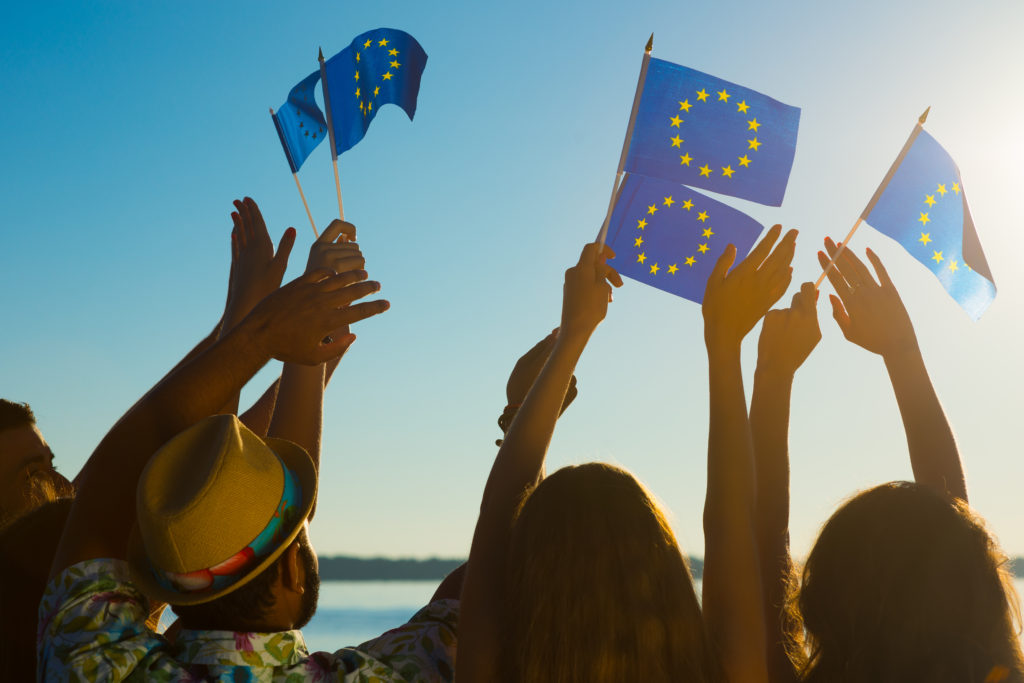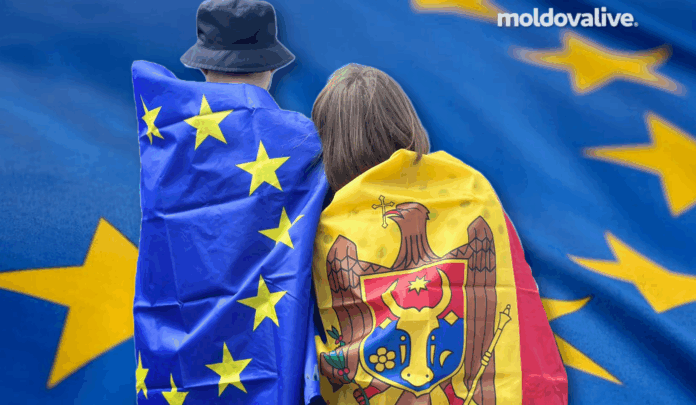Access to human rights, respect for the law, and democracy represent core European values. However, not all Moldovans see them as part of their daily lives. It is one of the conclusions of a study by Valentina Enachi, associate professor and doctor of history. She analyzes how Moldovan society embraces—or fails to embrace—European Union values, according to IPN.
The study shows that Europeanization involves more than a political decision. It requires social and cultural change. Many citizens support pro-European parties, but this does not mean they fully understand or live by democratic values. “Values do not exist in isolation; they reflect how people see their place in the world,” explains the author.
Moldova faces many challenges in adopting European values. The study shows that some people feel excluded or reject ideas like pluralism, tolerance, or solidarity. According to Enachi, social and economic gaps and the legacy of the Soviet past explain this resistance. “The process is slow and contradictory. People often misunderstand or reject European values because they don’t grasp their deeper meaning,” she says.
FOR THE MOST IMPORTANT NEWS, FOLLOW US ON TWITTER!
External forces also attack European values. The study highlights Russia’s continued influence on Moldovan public opinion through anti-Western propaganda. At the same time, some local politicians and religious leaders openly criticize European ideas, especially for minority rights and gender equality.
Survey data in the study reveal a fragmented value system. Fewer people value justice, charity, or civic spirit. Meanwhile, materialism, individualism, and identity confusion gain ground. “Even the importance of Christianity and the sacred is declining. The symbolic language of culture is losing meaning for the younger generation,” notes Enachi.
Low living standards play a key role in this value crisis. Only 3% of Moldovan families say they live in complete prosperity. Without a strong economy and trust in democratic institutions, people risk seeing European values as abstract concepts.

While some of these problems exist in EU countries, democratic societies address them differently. They talk about them openly and search for solutions. Enachi points out that fewer EU citizens now believe their countries are going in the wrong direction—a sign that trust in the system is returning.
Adopting European values requires more than passing laws or signing agreements. Citizens need to understand and personally relate to these values. “Clear and accessible communication must explain why dignity, freedom, and fundamental rights matter for every person,” the expert says.
Moldova’s path toward the EU means more than reforms. It demands a genuine change in mindsets. European values will become part of daily life if people recognize, understand, and live them.
The European Union rests on six core values: respect for human dignity, freedom, democracy, equality, the rule of law, and human rights—including minority rights. All member states share these values. These values form the foundation of a society that protects pluralism, tolerance, justice, solidarity, and non-discrimination. The EU promotes peace, citizen well-being, and sustainable development. It also supports a balanced social market economy and fights social exclusion.
As Moldova moves closer to the EU, these core values become more visible in reforms and alignment with European standards. The EU promotes them through cooperation programs, especially in justice, human rights, the rule of law, and democracy. Experts say Moldova has made progress in strengthening the rule of law, protecting fundamental rights, and fighting corruption—key steps for EU integration. Moldova also improves its education and health systems, promotes equality, and supports vulnerable groups. These actions reflect the country’s commitment to European principles.


